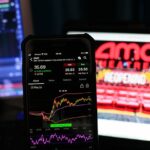Forex trading holds a prominent position in Singapore’s thriving financial ecosystem. However, for traders—whether they are beginners or seasoned professionals—it’s important to be aware of the various regulations that shape currency trading in the country. Singapore’s regulatory framework provides a clear structure, ensuring that all participants operate within a safe, legal, and transparent environment. This guide offers insights into these regulations and explains how they affect forex traders.
At the heart of Singapore’s financial regulatory framework is the Monetary Authority of Singapore (MAS). MAS, serving as the central bank and financial regulatory body, oversees all financial activities, including currency trading. Its high standards are recognized globally, and MAS’s role in maintaining a transparent and well-functioning market is invaluable. Any trader looking to enter the forex market in Singapore should be familiar with MAS’s regulations to ensure that their trading activities align with the legal standards and ethical expectations of the market.
A key regulation enforced by MAS is the requirement for forex brokers to hold a Capital Markets Service (CMS) License. This licensing ensures that brokers are financially sound and maintain adequate security measures to protect traders. For individuals entering the forex trading world, selecting a broker that is regulated by MAS not only provides legal protection but also assures them of the integrity and safety of their trading investments.
Moreover, MAS has introduced strict rules surrounding leverage and margin requirements. Leverage allows traders to control larger positions with a smaller amount of capital, which can lead to significant profits but also exposes traders to higher risks. In response to these risks, MAS has imposed limits on leverage to protect traders from falling into unmanageable debt. These restrictions ensure that traders do not take on excessive risk, safeguarding them from potentially devastating financial losses.
Money laundering and terrorism financing are significant concerns globally, and MAS has implemented rigorous measures to combat these issues in the forex market. Brokers operating under MAS’s jurisdiction are required to follow strict Know-Your-Customer (KYC) protocols. These measures involve verifying the identity of their clients and ensuring that traders’ activities align with legal standards. For traders, this means they will need to provide detailed personal information when opening a trading account, ensuring that both they and their broker remain compliant with MAS regulations.
In addition to these regulatory frameworks, it’s important for forex traders to be aware of the tax implications of their trading activities. According to Singapore’s Income Tax Act, profits earned from currency trading may be subject to taxation, particularly if the trading is done professionally or as a business activity. Traders need to distinguish between personal investment and business trading to ensure they meet all tax obligations. Seeking advice from a tax professional is recommended to avoid any potential tax-related issues.
Keeping abreast of regulatory updates is another critical aspect of forex trading in Singapore. Financial markets evolve rapidly, and MAS regularly updates its policies to reflect these changes. Traders must stay informed about these updates to remain compliant. Regular visits to the MAS website or subscribing to reliable financial news sources can help traders stay ahead of any regulatory shifts.
Forex trading in Singapore benefits from a well-regulated environment that prioritizes transparency, security, and fairness. By adhering to MAS regulations, traders can engage in currency trading with confidence, knowing that their activities are both legal and secure. Familiarity with the rules and an understanding of how they apply to individual trading strategies are essential for long-term success. As the saying goes, knowledge is power, and in forex trading, being well-informed often leads to better outcomes. Take the time to understand the legal landscape, as this knowledge will help ensure that your trading journey is both successful and compliant.
This unique environment that Singapore offers—robust regulations, a stable financial market, and a secure trading framework—makes it a highly attractive place for forex traders. Whether you’re looking to start your trading journey or are already immersed in the forex markets, staying informed and compliant is key to your long-term success.



